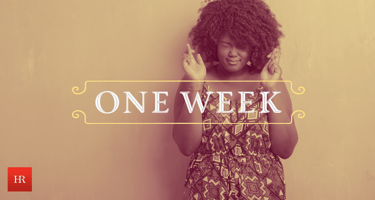Have you been fascinated with having special powers? As a kid comic book enthusiast, I would spend...
A Different Corner
What if one decision alters the course of your life? What if it’s multiple decisions? Chance encounters, missing out on a job opening, picking one bar over another to hang on a Friday night…all of these can limit or expand whom you meet, or they can change circumstances from which you make decisions. Not to give it all away, but yes, one decision can alter the course of your life.
In the movie Sliding Doors, Gwyneth Paltrow’s life vacillates between two different paths merely based on whether she made her train home from work or not. There is one particular relationship that hangs on that train ride. Ultimately, there is a convergence of timelines and relationships. In real life, you may feel that option doesn’t exist. If you miss it, you blew it.
Regret over these lost opportunities plagues many in our workplaces, our communities, and even our homes. “If only I had…” is a refrain that plays in the minds of many throughout any given day. It is overwhelmingly restricting and can cause some to spiral downward as they sit in that regret. No one is alone in these perceived missed opportunities, but the answer isn’t in the mourning of them.
Consider the benefit of what could have been thinking. It is a rabbit hole of rehashing conversations, reconsidering how circumstances should have played out, and rehearsing better responses. It is an endless cycle of lack. And once lack becomes the central focus, our mental, emotional, and physical health can trend downward.
Let’s affirm one thing to start – you are right where you are supposed to be. Let’s state that again. Today, you are where you are. You may want differently. You may wish you had chosen wiser or with more intention, but here you are. Accepting that today you are where you are supposed to be is freeing. It frees you up to healthily look at what could be.
The shroud of regret blinds us to the whole picture and to the context of what is really in front of us. In 2016, The Atlantic published an article that explored this idea of regret costs based upon one main premise – “The tradeoff for moving our own pieces is that sometimes we make mistakes, and we have to live with them.” Accepting this basic truth is the start to a healthier approach to what is and to what could be next.
Your life is not disappointing because you did not take one job over another. Early on in my career, I had the opportunity to work for TV Guide (if you don’t know what this is, I weep for you). Looking back on it, I should have said yes. I turned the role down. It did not have all of the things I wanted it to have. I was short-sighted and immature. I can see that today. However, I am not supposed to live in regret and disappointment over thirty years later. I ought to be able to look at it, see it for what it was (a learning opportunity), and then move on.



.png?height=200&name=Humareso%20Blog%20Posts-19-Wedding%20Bell%20Blues%20(1).png)
Blog comments